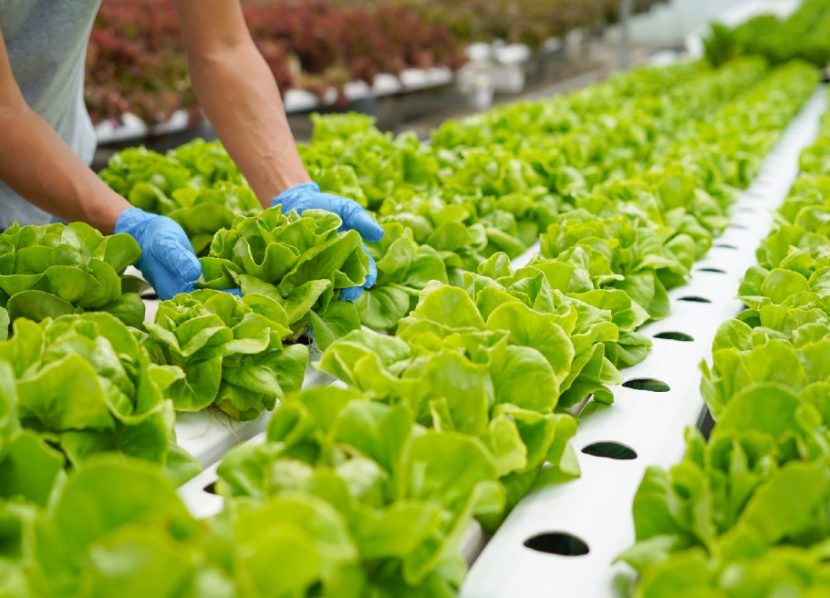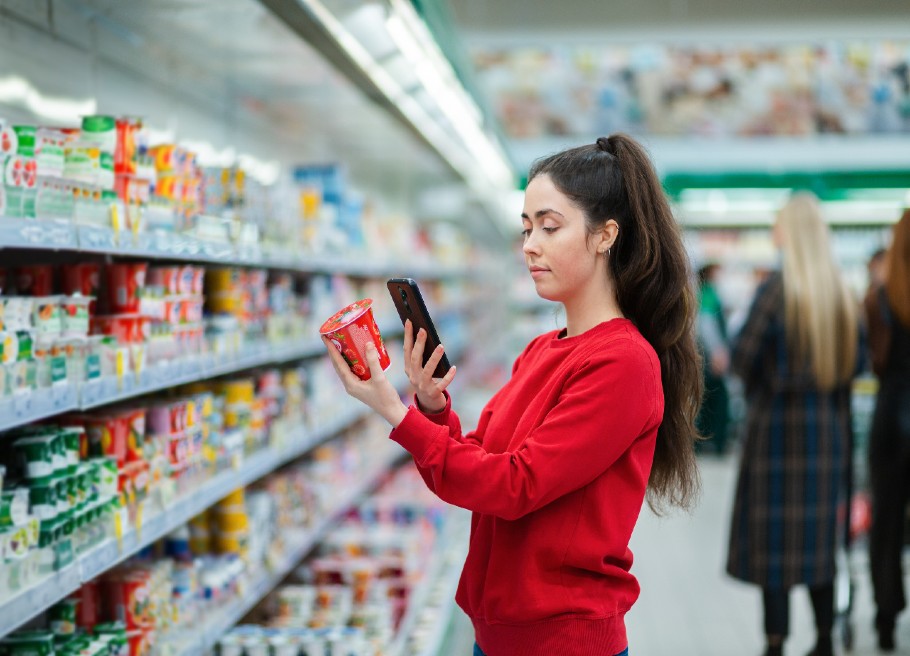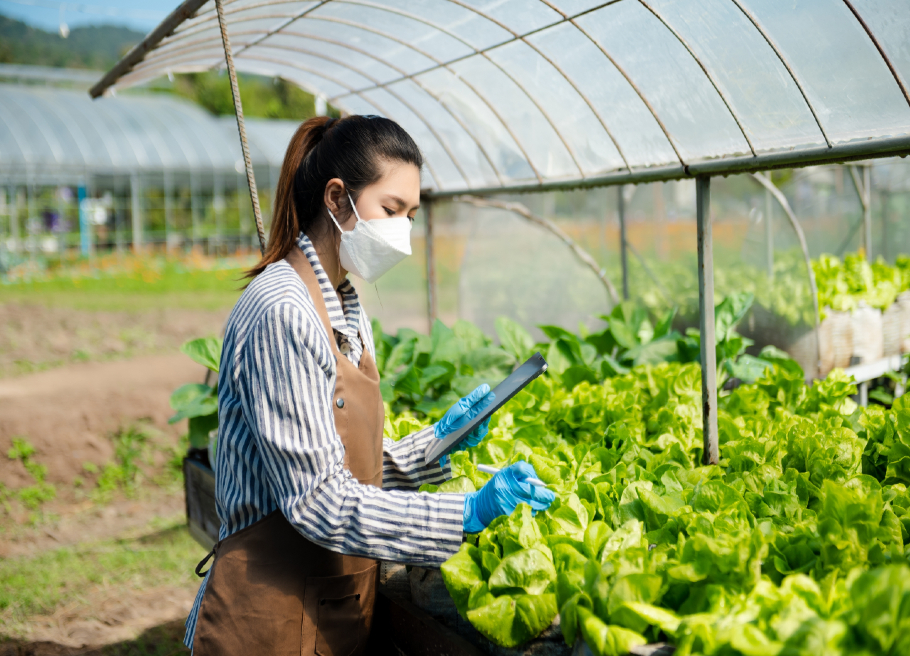Sowing the Seeds of Food Safety: Mitigating Risks in Agriculture
Content Produced by GFSR
In today’s increasingly interconnected global food system, agricultural practices lay the foundational stone for overall food safety. With every bite we take, we place implicit trust in a vast network of producers, suppliers, and distributors, all of whom contribute to the journey of our food from the farm to our plates. Ensuring this journey is devoid of hazards necessitates an intricate dance of prevention, monitoring, and rapid response.
Whether it’s tracing the origins of a product with laser precision or equipping farmers with the latest in agricultural knowledge, every measure taken streamlines the path towards a safer food supply chain. The unique food safety challenges faced in agriculture demand distinct solutions, especially when considering the entirety of the supply chain.
Let’s explore the challenges unique to agricultural production, and the strategies that can be used to mitigate them and create safer food for consumers.
Agricultural Food Safety Issues
Across the supply chain, there are a number of threats that need to be considered when designing food safety programs and employing preventive controls. Issues specific to agriculture include:
- Environmental Contaminants: Pesticides, fertilizers, and heavy metals can infiltrate crops either from soil, water, or air. This not only impacts the safety of the food product but can also disrupt the ecological balance.
- Biological Hazards: Pathogens such as E. coli, Salmonella, and Listeria may pose threats to crops. These can be introduced through animal intrusion, contaminated water sources, or even human contact, especially if farm workers do not adhere to hygiene practices.
- Climate Change: Global weather alterations can influence the prevalence and types of pests and diseases, the nutritional quality and yields of crops, and their vulnerability to contaminants.
- Pest and Disease Management: The introduction of new pests or diseases, possibly due to changing weather patterns or movement of goods, can threaten crops, leading to unsafe use of chemical treatments or loss of yield.
- Residue Management: Overreliance on chemical pesticides and herbicides can lead to residues on produce, which may remain even after processing and pose health risks to consumers. So now that we’ve identified the unique food safety problems, let’s talk about what food safety professionals can do to do to prevent them and rapidly address them when they do come up.
Whether it’s tracing the origins of a product with laser precision or equipping farmers with the latest in agricultural knowledge, every measure taken streamlines the path towards a safer food supply chain.
Mitigating Agricultural Food Safety Risks in the Supply Chain
From leveraging the power of modern technology to fostering meaningful relationships with suppliers, the steps we take today will define the safety and quality of the food we consume tomorrow. As we delve deeper into specific strategies, it becomes clear that proactive and integrated approaches are the way forward in guaranteeing the integrity of our meals.
- FDA’s Fresh Produce Rule: Instituted under the Food Safety Modernization Act (FSMA), this rule establishes science-based minimum standards for the safe growing, harvesting, packing, and holding of fruits and vegetables grown for human consumption. By aligning with these standards, agricultural producers can significantly minimize the potential for contamination.
- Foreign Supplier Verification Programs (FSVP): A key provision of the FSMA, the FSVP requires importers to verify that the food products they bring into the U.S. have been produced in a manner that meets applicable U.S. safety standards. This means working closely with foreign suppliers to ensure they follow processes and procedures that offer the same level of public health protection as those required of domestic producers. The FSVP is crucial in an interconnected global food system, ensuring that imported foods are just as safe as those produced domestically.
- Implement Farm-to-Fork Traceability: A robust traceability system can help identify the origins of contamination swiftly, allowing for rapid responses and solutions. This also enhances consumer trust, as it demonstrates transparency and accountability.
- Enhance Education and Training: Equip farmers with knowledge on best agricultural practices. Understanding the significance of soil health, safe pesticide usage, and water quality can greatly reduce the risk of food contamination.
- Prioritize Regular Inspections and Audits: By ensuring farms and agricultural facilities adhere to strict safety standards through periodic inspections, you create a foundation of accountability and diligence.
- Foster Collaborative Supplier Relationships: Establishing a rapport with suppliers who prioritize food safety can result in more streamlined communication, allowing for proactive problem-solving and risk mitigation.
- Leverage Technology: Modern technology offers a plethora of solutions. Drones can monitor large swathes of crops for signs of disease or pest infestation. Predictive analysis can offer insights into potential outbreaks or threats. Using blockchain technology, the traceability of products can be more secure and transparent, ensuring accountability at each step of the supply chain.
As the starting point for most food products, agriculture holds immense responsibility in ensuring food safety. Recognizing the unique challenges this sector faces and proactively seeking solutions, especially in the context of the supply chain and regulations like the Fresh Produce Rule and FSVP, will go a long way in delivering safe, quality produce to the end consumer.

-
 FeaturedRisk management
The Cost of a Breach: What a Cyberattack Could Mean for Food Safety Recalls
FeaturedRisk management
The Cost of a Breach: What a Cyberattack Could Mean for Food Safety Recalls
-
 FeaturedRisk management
Securing the Food Chain: How ISO/IEC 27001 Strengthens Cybersecurity
FeaturedRisk management
Securing the Food Chain: How ISO/IEC 27001 Strengthens Cybersecurity
-
 FeaturedRisk management
Revolutionizing Food Safety Training: Breaking Out of the “Check-the-Box” Mentality
FeaturedRisk management
Revolutionizing Food Safety Training: Breaking Out of the “Check-the-Box” Mentality
-
 GFSI Standards
GFSI 2025: Building Trust, Tech-Forward Solutions, and Global Unity in Food Safety
GFSI Standards
GFSI 2025: Building Trust, Tech-Forward Solutions, and Global Unity in Food Safety
-
 FeaturedFood Safety
Integrated Pest Management: Strategies to Protect Your Brand’s Reputation
FeaturedFood Safety
Integrated Pest Management: Strategies to Protect Your Brand’s Reputation
-
 FeaturedFood Safety Culture & Training
No Open Door Policy: Challenges That Impact Pest Control in Food Processing Plants
FeaturedFood Safety Culture & Training
No Open Door Policy: Challenges That Impact Pest Control in Food Processing Plants




